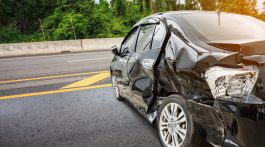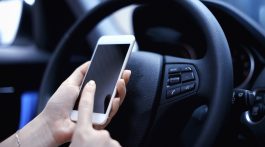Car accidents are an unfortunate reality of modern life, with thousands occurring every day around the world. When you find yourself involved in a car accident, emotions can run high, and it can be challenging to know how to respond appropriately. One of the most common questions people ask themselves in such situations is, “Should I call the police?”
The answer to this question is not always straightforward, as it depends on the severity of the accident and the laws in your specific region. However, in most cases, involving law enforcement is a prudent step. Let’s explore some reasons why calling the police after a car accident is generally the right course of action:
Documentation and Insurance Claims
Having a police officer at the scene of the accident ensures proper documentation of the incident. They will create an official police report detailing the circumstances, damages, and statements from involved parties and witnesses. This report can be crucial when dealing with insurance companies, ensuring that the claims process is smoother and more accurate.
Legal Requirements
In many jurisdictions, it is mandatory to report a car accident to the police if certain conditions are met. For example, if there are injuries, fatalities, significant property damage, or if the accident involves a hit-and-run or drunk driving, you are legally obligated to call the police immediately.
According to Bonilla Law Firm PLLC, a personal injury law firm in Austin, Texas, it might be necessary to file a personal injury lawsuit with the help of police against the at-fault driver if your insurance claim is denied or if they refuse to offer a fair settlement amount. In addition, your case might need to be taken to trial if there is no settlement that can be reached.
Objective Mediation
Accidents can be tense and emotionally charged situations. Having a neutral and trained police officer on the scene can help mediate between parties, preventing potential confrontations and ensuring that all relevant information is collected impartially.
Evidence Preservation
Sometimes, drivers may attempt to flee the scene or change their stories after an accident. Calling the police ensures that there is an official record of the incident, which can be valuable if legal issues arise later.
Emergency Medical Assistance
If the accident results in injuries, calling the police means that emergency medical services can be dispatched promptly. This can be critical in providing timely medical attention and potentially saving lives.
However, there might be situations where contacting the police immediately may not be necessary. For example:
Minor Fender Benders: If the accident is minor, with no injuries and only minimal property damage (e.g., small scratches or dents), some jurisdictions may not require police involvement. However, it’s still wise to exchange information with the other driver and take photos of the scene and damages for your records.
Private Property: In some regions, accidents that occur on private property, such as in a parking lot, may not require police involvement unless there are injuries or other extenuating circumstances.
Remember that laws can vary depending on your location, so it’s essential to familiarize yourself with local regulations regarding car accidents.
Making A Wise Decision
In conclusion, calling the police after a car accident is generally a wise decision, especially if there are injuries, significant damage, or legal requirements to do so.
By involving the police, you ensure that the incident is appropriately documented, parties are protected, and the claims process proceeds smoothly. However, for minor accidents on private property, where no legal requirement exists, you may opt for alternative methods of resolving the situation, such as exchanging information with the other driver. When in doubt, involve the police, as their presence can be invaluable in handling the aftermath of a car accident responsibly and efficiently.



No Comment